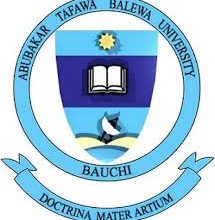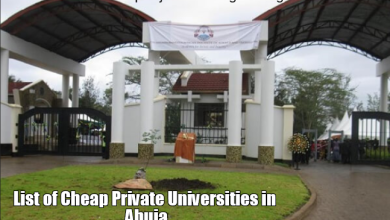Universities With The Lowest Cut-Off Marks For Public and Private International Law In Nigeria
Are you trying to find the list of Nigerian universities with the lowest cut-off mark required to get admitted to the Public and Private International Law programs? Read on to know Nigeria Universities with the lowest cut-off mark.
If you want to pursue a career in Public and Private International Law but are unsure about the most recent jamb cutoff mark for a course like Public and Private International Law.Here is a list of Nigerian institutions that have cut-off mark that we have verified; it is the lowest of all the universities in Nigeria that provide Public and Private International Law programs.
Universities With The Lowest Cut-Off Marks For Public and Private International Law In Nigeria

To gain admission into Public and Private International Law program at a Nigerian university, meeting the cut-off mark for the subject is essential. The following universities have some of the lowest cut-off marks for Public and Private International Law
University of Lagos – Low Cut-Off Marks for International Law
The University of Lagos (UNILAG) in Nigeria has one of the lowest cut-off marks for admission into its International Law program. To gain admission into UNILAG for a Bachelor of Laws degree in International Law, applicants need a minimum cut-off mark of 180 in the Unified Tertiary Matriculation Examination (UTME).
Faculty of Law
UNILAG’s Faculty of Law was established in 1962 and has grown into one of the leading law schools in West Africa. The Faculty aims to produce world-class professionals in law and related disciplines. It offers undergraduate and postgraduate programs in various specializations of law, including International Law.
Program Details
The Bachelor of Laws (LL.B) in International Law at UNILAG is a four-year program that equips students with a strong foundation in legal principles and concepts in international law. Some of the core courses in the program include:
- Public International Law
- Private International Law
- International Institutions
- International Human Rights Law
- International Criminal Law
- International Environmental Law
Upon completion of the program, graduates can proceed to the Nigerian Law School and become qualified to practice as Barristers and Solicitors of the Supreme Court of Nigeria, or pursue a Master’s degree in International Law.
With a low cut-off mark and strong faculty, UNILAG’s International Law program is an excellent option for students looking to build a career in this field. By gaining a comprehensive understanding of international legal systems and human rights, graduates can make a meaningful impact on global issues.
Read also:Universities With The Lowest Cut-Off Marks For Insurance In Nigeria
University of Nigeria, Nsukka – Affordable International Law Program
The University of Nigeria, Nsukka offers an affordable bachelor’s degree in International Law for both domestic and international students. Founded in 1955, UNN is Nigeria’s first indigenous university, with a campus spanning over 4000 acres.
Admission Requirements
To gain admission into UNN’s LLB program in International Law, you will need to meet the following requirements:
- Minimum cut-off mark of 180 for UTME (JAMB)
- At least 5 credits in WAEC/NECO/GCE O’Level including English Language and Literature
- Post-UTME screening which may include an oral interview
Program Details
UNN’s LLB in International Law takes a minimum of 5 years (10 semesters) of full-time study to complete. Some of the core courses you will take include:
- Introduction to International Law
- International Human Rights Law
- International Criminal Law
- International Trade Law
- Diplomatic and Consular Law
You will also complete a final year project and participate in moot courts to gain practical experience.
Accreditation and Recognition
UNN’s law degrees including the LLB in International Law are accredited by the National Universities Commission of Nigeria. UNN is also recognized globally, ranked among the top 20 universities in Africa. Graduates of the LLB in International Law program can proceed to obtain a Barrister at Law degree (BL) at the Nigerian Law School.
With its rich history, strong credentials, and affordable fees, the University of Nigeria, Nsukka offers an excellent option to study International Law in Nigeria. The school provides a conducive environment for learning and developing relevant skills to build a career as an international lawyer.
Babcock University – Accessible International Law Degree
Babcock University in Ogun State offers one of the most accessible degrees in International Law in Nigeria. With a relatively low cut-off mark and affordable tuition, Babcock University provides an opportunity for students interested in a career in international law to pursue a Bachelor of Laws (LL.B) degree.
To gain admission into Babcock University’s law program, candidates must obtain a minimum of 180 in the Unified Tertiary Matriculation Examination (UTME). The school also considers applicants’ O’Level results, with a minimum of 5 credits including English Language, Literature in English and Government. These entry requirements are lower compared to most other Nigerian universities offering law.
At Babcock University, the law program provides a strong foundation in international law and diplomacy. The curriculum covers core courses on public international law, international criminal law, international trade law, international human rights law, international organizations, and diplomacy. Students also complete internships at law firms, non-governmental organizations, and government agencies to gain practical experience.
With a focus on moral and spiritual development, Babcock University aims to produce law graduates that demonstrate integrity, sound judgment, and high ethical standards. Graduates of the law program are prepared for careers as legal practitioners, legal officers in government ministries, researchers, lecturers and magistrates. Many also pursue postgraduate degrees in international law, diplomacy and other related fields.
The tuition fees at Babcock University are lower compared to most private tertiary institutions in Nigeria. In addition, the school offers scholarships and financial aid to students in need of assistance. These factors, combined with the opportunity to earn an undergraduate degree in law with specialization in international law, make Babcock University an excellent choice for those seeking an affordable legal education.
Covenant University – Competitive Cut-Off for International Law
Covenant University is one of the private universities in Nigeria with the lowest cut-off mark for admission into its Public and Private International Law program. To gain admission into Covenant University to study International Law, you are required to score at least 180 in the Joint Admissions and Matriculation Board (JAMB) exam.
Competitive Admission Process
Covenant University’s admission process into the International Law program is very competitive. Out of the many candidates that apply, only a few exceptional students are given the opportunity to study International Law at this prestigious institution. To stand a good chance, you must meet the minimum cut-off mark and pass the post-UTME screening. The post-UTME usually comprises of an online screening test to determine eligible candidates for the program.
Program Curriculum
The International Law program at Covenant University aims to equip students with a strong knowledge of international law and international relations. Some of the compulsory courses offered in the program include:
- Introduction to International Law
- International Institutions
- International Human Rights Law
- International Trade Law
- International Environmental Law
- Diplomacy and Foreign Policy
Career Prospects
Graduates of the International Law program have excellent career opportunities in government agencies, non-governmental organizations, multinational corporations, and international organizations like the United Nations, African Union, and Economic Community of West African States. They can work as international lawyers, policy analysts, foreign service officers, and legal advisers in a variety of settings.
Covenant University provides high quality education and offers students a balanced learning experience for personal growth and professional development. If you desire to build a career in International Law, Covenant University would be an excellent choice with its competitive cut-off mark and world-class program.
FAQs
To gain admission into any university in Nigeria to study Public and Private International Law, meeting the minimum cut-off mark is crucial. The cut-off mark varies across different universities, based on factors like the competitiveness of the program and the quota of available spaces.
What are the cut-off marks for Public and Private International Law in various Nigerian universities?
The cut-off marks for Public and Private International Law in some select Nigerian universities are:
- University of Lagos: 200
- Ahmadu Bello University, Zaria: 180
- University of Ibadan: 200
- Obafemi Awolowo University: 190
- University of Nigeria, Nsukka: 180
- Lagos State University: 190
- Delta State University: 180
- University of Uyo: 180
- Ambrose Alli University: 170
These cut-off marks are for candidates that chose these universities as their first choice. The cut-off marks may be lower for candidates that chose the universities as their second or third choice. Some universities also consider a candidate’s UTME score, O’level results, and performance at their post-UTME screening exercise before determining if the candidate meets the cut-off mark.
Can one gain admission into a Nigerian university with a score below the cut-off mark?
It is possible to gain admission into a Nigerian university with a score below the advertised cut-off mark. This is usually done during the second or third admission lists or at the discretion of the university. Some of the factors that can aid one’s admission despite having a score below the cut-off mark include:
- Outstanding performance at the post-UTME screening exercise.
- Meeting the UTME subject requirements for one’s chosen course of study.
- Having exceptional O’level results with most subjects at Credit or Distinction level.
- Applying for a less competitive course within the university.
- Coming from an educationally disadvantaged state or local government area.
Gaining admission below the cut-off mark is not guaranteed but putting in an exceptional performance at one’s screening exercise and having outstanding O’level results can increase one’s chances. Candidates are advised to choose universities that set cut-off marks closest to their UTME score.
Read also:Universities With The Lowest Cut-Off Marks For Geology In Nigeria









